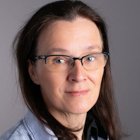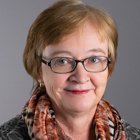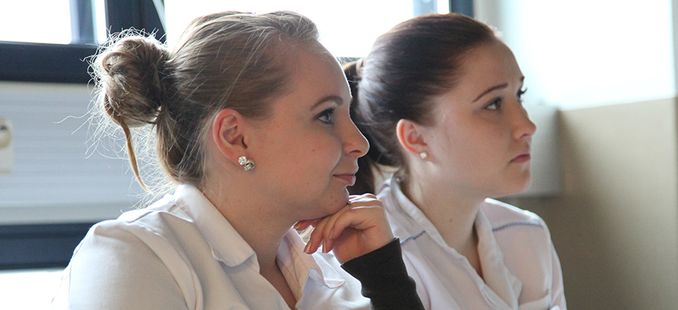
Health and Well-being on the way to the future
In the faculty of Health and Well-being, we work for the needs and targets for development of the social and health care field. We implement multidisciplinary training and research, development and innovation projects.
Text: Marjut Putkinen, Dean and Saija Vanhanen, planner
Photos: Miia Tuominen and Jussi Vierimaa
The graduates from our faculty have excellent employment prospects. We educate specialists extensively and diversely for the social and health care field, both in Bachelor’s and Master’s degree programmes. Almost 2 300 students in 15 fields take part in our education.
In the autumn of 2015, we will begin a new training in Turku: that of dental technicians. Dental technicians are experts in the field of oral health care. They design and manufacture different dentures and braces in cooperation with dental care personnel. The dental technician’s job combines traditional handwork with modern-day technology, such as computer-assisted design, automatic milling machines and 3D printing.
Our activity is, according to innovation pedagogy, based on sharing knowledge and competence and on combining and trying out different perspectives. In addition to practical training, our students participate in research, development and innovation projects done in cooperation with workplaces and communities as part of their studies. This helps them gain a versatile idea of the jobs in the field and a national and international contact network already during their studies.
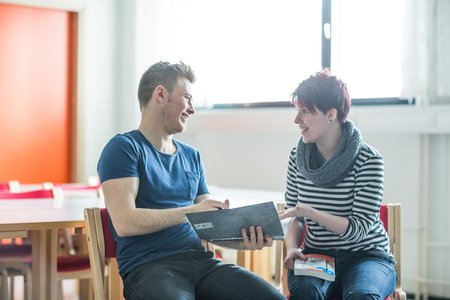
The studies are international. Internationality becomes concrete in international student and staff mobility, international projects and in the foreign-language teaching.
We are constantly looking for new solutions to promote health and well-being and the goals of the region. Our seven research groups work to promote the goals and well-being of the region in RDI projects that develop working life. Get to know the projects in more detail here.
Developing the Master’s degrees
Master’s degree education has been implemented by the faculty of Health and Well-being for several years: the Master’s Degree Programme in Health Promotion since 2005, Social Services and Management and Leadership in Health Care since 2007, Rehabilitation since 2008 and Advanced Nursing Practice since 2009. Of these, the degree programmes in Health Promotion, Management and Leadership in Health Care and Advanced Nursing Practice belong to a joint team. From the beginning of 2015, the degree programmes in Social Services and Rehabilitation will also join the team.
The integration will create more versatile opportunities to develop Master’s degree education in the social and health care field. The multidisciplinarity of the studies deepens the students’ expertise. The focus is on combining internationality and entrepreneurship with the studies. Innovation pedagogy, internationalising teaching and research, development and innovation activities (RDI) are emphasised in the studies.

Master’s degree education is developed regionally and nationally, for example in the CoastAL and YAMK-koulutus vahvaksi TKI-vaikuttajaksi (”Master’s degree education as a strong RDI force”) projects.
CoastAL, the consortium of universities of applied sciences in Southwest Finland, is formed by TUAS and Satakunta University of Applied Sciences. It aims at cooperation in RDI activities, summer studies and Master's degree education among others.
YAMK-koulutus vahvaksi TKI-vaikuttajaksi project is divided into four packages, in which TUAS is involved with the theme Master’s degree teaching as a bridge-builder. Regional impact requires that the Master’s degree training provides innovations that can be implemented in working life, and this in turn requires bridge-builders. The role of a Master’s degree teacher as a bridge-builder in an RDI environment is to modify teaching into co-teaching with working life experts and students. In the subproject, new casting is being developed with the actors through experimentation, as well as a team teaching model and a tripod model. When tightening the cooperation, clear definitions of the new roles are important.
The role of the graduates with Master’s degrees is central in the development and publication of the roles of the experts in the field. The networking of the graduates on the national and international level promotes the development of the role. The support of supervisors and own organisations are also vital in the development of both the education and the role of the expert.
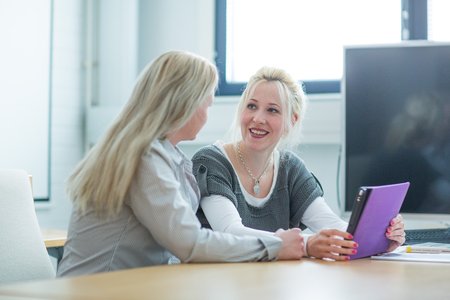
Health and Well-being in the future
On 1 January 2014, Turku University of Applied Sciences became a limited liability company. This is why the organisation structure has changed and is still under the process of change. In terms of the faculty of Health and Well-being, this brings some changes.
Marjut Putkinen will continue in the position of Dean, but from 1 January 2015, Heads of Research and Education will start in their new posts, and they will also supervise the activities of the research groups in their field. The Heads of Education and Research will be:
- Ursula Hyrkkänen, Rehabilitation and special areas in Health Care: physiotherapy, occupational therapy, biomedical laboratory science, radiography, dental hygiene, dental technology
- Pia Ahonen, Part-time studies and Master’s degrees: Advanced Nursing Practice, Rehabilitation, Management and Leadership in Health Care, Health Promotion
- Meeri Rusi, Social Care: social care
- Hannele Paltta, Health Care: nursing, public health nursing, midwifery, emergency care, Nursing (English-language programme)
